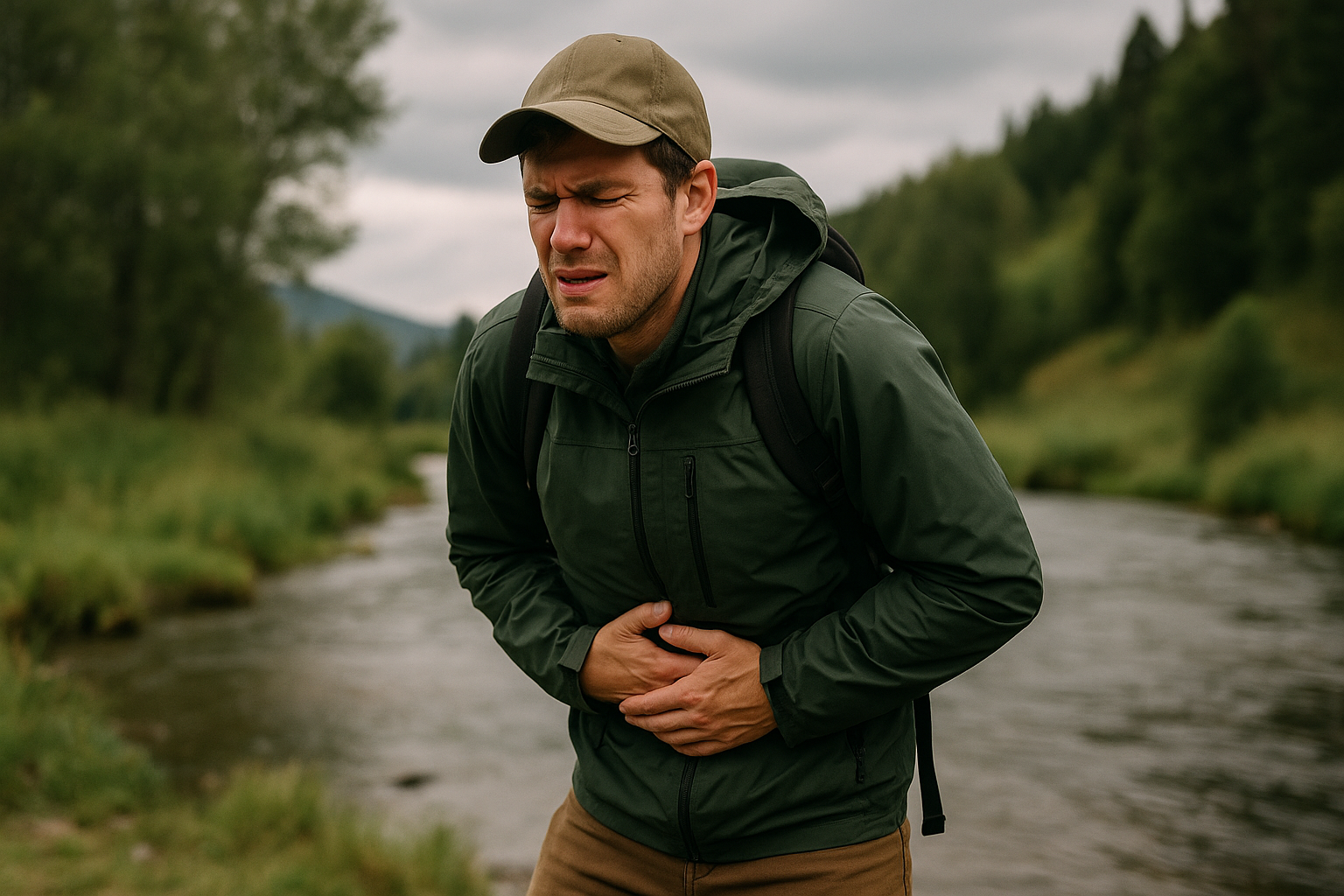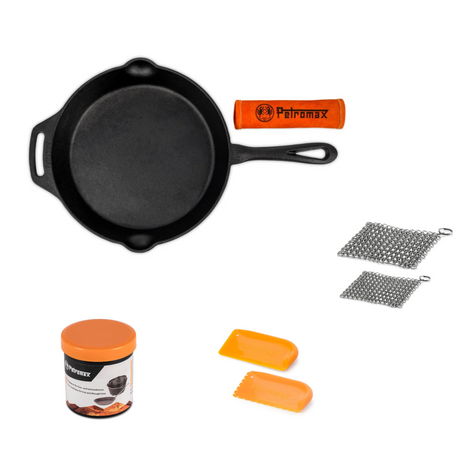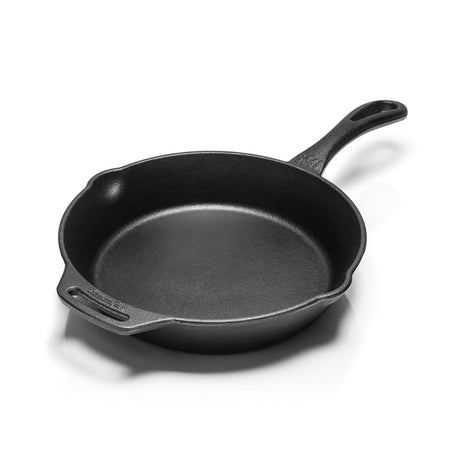Few things are more annoying than having to concentrate on the nearest toilet instead of the beach or sightseeing during a well-deserved vacation. Traveler's diarrhea is a classic spoilsport - worldwide. The good news: with the right tips, you can significantly reduce your risk and react quickly in an emergency. In this article, you'll find out how traveler's diarrhea develops, what triggers it, how you can prevent it and when it makes sense to see a doctor. I'll also tell you which medicines should definitely be in your first-aid kit.
Table of contents
Traveler's diarrhoea on vacation: medical explanation and how often it occurs
What triggers traveler's diarrhoea?
How can you prevent traveler's diarrhoea and what to do in the event of acute traveler's diarrhoea on vacation?
What medication should be in the first-aid kit for diarrhea?
When should you see a doctor if you have traveler's diarrhea?
Key points summarized
Traveler's diarrhoea on vacation: medical explanation and how often it occurs
When we talk about "traveler's diarrhea", the medical term usually refers to so-called traveler's diarrhea. This refers to an infection of the gastrointestinal tract, which is almost always accompanied by acute diarrhea. Typical symptoms are watery stools, abdominal pain, nausea and sometimes fever.
Incidentally, you are not alone: it is estimated that 20 to 50 % of all travelers to tropical and subtropical countries suffer from traveler's diarrhea. It is particularly common in regions such as South East Asia, Africa, South America and the Middle East. However, diarrhea is also not uncommon when traveling to the Mediterranean.
The infection usually subsides on its own after a few days, but the symptoms can really spoil your vacation. And: in rare cases, an infection can have serious consequences, especially in young children, older people or people with pre-existing medical conditions.
What triggers traveler's diarrhea?
There are many causes of traveler's diarrhea. Bacteria are the most common cause - especially salmonella and E. coli. A virus such as norovirus can also trigger the infection, as can parasitic pathogens that occur in some risk areas.
An overview of the most common causes:
| Triggers | Typical occurrence | Risk for travelers |
|---|---|---|
| Bacteria (e.g. salmonella, E. coli) | Contaminated food, meat, eggs | Very high |
| Viruses (e.g. norovirus, rotavirus) | Crowds of people, contaminated surfaces | Medium |
| Parasites (e.g. Giardia lamblia) | Certain tropical areas, unclean water | Low to medium |
| Contaminateddrinking water or ice cubes | Common in developing countries | Very high |
Contaminated food and water sources are particularly treacherous. Even a salad washed in unclean water or a few ice cubes in a cocktail can be enough to catch you.
How can you prevent traveler's diarrhea and what to do if you get acute traveler's diarrhea on vacation?
Prevention really is half the battle when it comes to traveler's diarrhea. Many infections are simply caused by small carelessness in everyday life: a careless sip from a water bottle at the roadside, unwashed hands before a snack or a tempting cocktail with ice cubes. Especially on vacation, we are more relaxed and quickly forget how important hygiene is - but you can significantly reduce your risk with a few simple tricks.
The rule of thumb for traveling to high-risk areas is: cook it, boil it, peel it or forget it
In plain language, this means
- Cook it: Only eat food that has been cooked or fried.
- Boil it: Only drink drinks made from boiled water.
- Peel it: Only eat fruit if you can peel it yourself.
- Forget it: When in doubt, it's better to give it up - as difficult as it sometimes is.
High-risk foods:
| Foods | Why risky? |
|---|---|
| Raw seafood | High bacterial load, difficult to control |
| Salads | Often washed with unclean water |
| Raw meat / undercooked eggs | Bacteria such as salmonella possible |
| Dairy products from street stalls | Often not pasteurized |
👉 You can find more information at the Tropical Institute.
Be careful with water
Tap water is not automatically safe to drink everywhere. In many countries, you should avoid it at all costs - even when brushing your teeth. Instead, use bottled water (preferably originally sealed) or prepare your own water.
Important tips:
- No ice cubes in drinks (often made from tap water).
- It is better to order drinks without ice.
- Tea and coffee are usually safe as the water is boiled.
If you do catch it: first aid for acute traveler's diarrhea
Despite all precautions, it can happen that you fall ill. It is then important that you don't put any additional strain on your body, but instead help it to recover.
- Replace fluids: Drink still water or special electrolyte solutions.
- Replenish salt: Salt sticks or broth help to balance minerals.
- Light food: Rusks, rice, boiled potatoes or bananas are easy on the stomach.
- Allow yourself to rest: Your body needs energy to fight the infection.
This will help you to get over the symptoms more quickly and get back on track soon.
What medication should be in the first-aid kit for diarrhea?
A well-stocked first-aid kit is like a little safety anchor: you hope you'll never need it - but if you do, you'll be glad you're prepared. Every hour counts, especially in the case of traveler's diarrhea, because the loss of fluids and salt can quickly put a strain on your circulation. What's more, you don't necessarily want to be trying to explain medication with your hands and feet in a foreign pharmacy.
Preventive travel: probiotics
Before you even get on the plane, you can support your gut. Probiotics help to stabilize the intestinal flora and make it more resistant to foreign pathogens. Many travelers take them a few days before departure and continue to take them during their vacation - as a small "protective force" in their gut, so to speak.
Acute medication: For emergencies
If you already have diarrhea and want to get better quickly, acute medication can help. Important: They do not fight the cause (i.e. the infection itself), but only alleviate the symptoms. You should therefore use them sparingly - for example, if you have a bus journey or flight ahead of you despite your symptoms.
Electrolyte solutions: Little helpers, big effect
One of the biggest dangers of traveler's diarrhea is the loss of fluids and minerals. This is where electrolyte solutions come into play: they quickly make up for the deficiency and stabilize the circulation. You can buy ready-made sachets from the pharmacy or mix your own solution of water, salt and sugar in an emergency.
Must-haves for your first-aid kit
So that you don't have to think long, here is a small packing list:
- Probiotics (preventative)
- Electrolyte powder or tablets
- Diarrhea stopper (e.g. loperamide) for emergencies
- Painkillers for stomach cramps
- Clinical thermometer (small and digital)
- Disinfectant gel for on the go
Tip: It is best to pack your medication in your hand luggage. If your checked baggage gets lost, you will have immediate access in case of doubt.
When should you see a doctor if you have traveler's diarrhea?
Even if traveler's diarrhea is harmless in most cases, sometimes self-treatment is not enough. And that's where it's important to know when you shouldn't delay going to the doctor any longer. Because waiting too long can make the whole thing dangerous.
Take warning signs seriously
There are a few clear symptoms that you should not ignore:
- Blood in the stool → indicates a serious infection
- High fever (over 38.5 °C) → an indication of an aggressive pathogen
- Diarrhea lasting longer than three days → Risk of dehydration
- Severe abdominal pain and circulatory problems → Risk of complications
As soon as one of these signs appears, a visit to the doctor is strongly recommended.
Special risk groups: Infants and young children
In adults, the body usually copes better with fluid loss. In infants and small children, even a single day of diarrhea can lead to severe dehydration. In this case, it is better to seek medical help immediately. Older people or people with pre-existing medical conditions should also consult a doctor at an early stage.
Caution in risk areas
In some regions, there is also a risk of serious illnesses such as cholera. This applies in particular to parts of Africa, South Asia or crisis areas with a poor drinking water supply. If you are traveling to such areas, it is best to find out in advance about special vaccinations or prophylactic medication
Key points summarized
- Prevention: Washing your hands thoroughly and eating consciously are the best strategies.
- Travel first-aid kit: Medication, probiotics and electrolyte solutions belong in every luggage.
- Acute treatment: Drinking plenty of fluids, eating lightly and replacing salt will help your body.
- See a doctor: If you have blood in your stool, a fever or persistent symptoms, seek medical help.
- Risk areas: Additional precautionary measures are important in certain countries.
This way, you'll be well prepared to enjoy your next trip without any unpleasant stopovers.


































